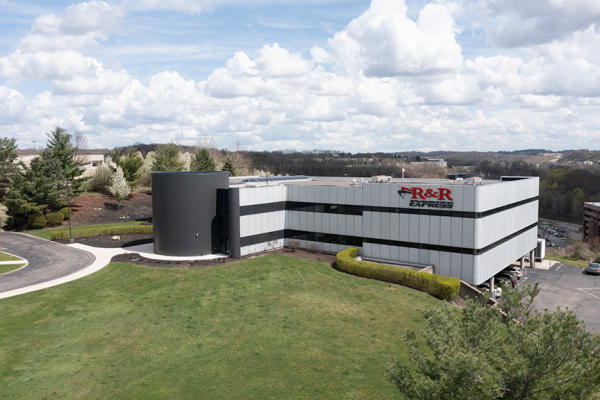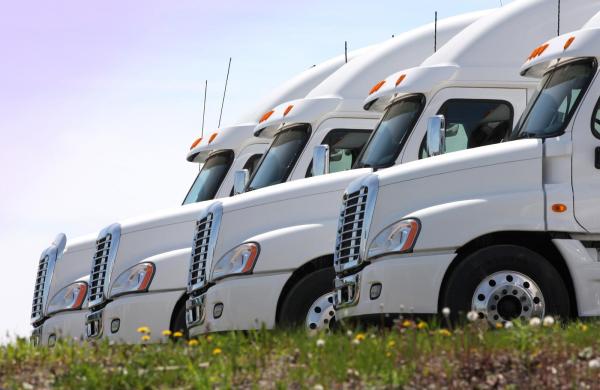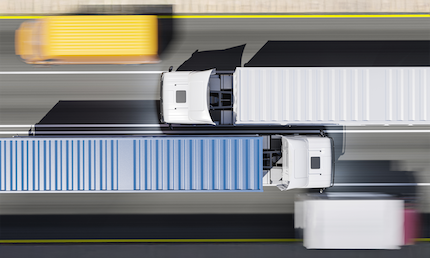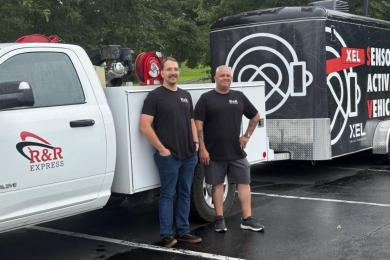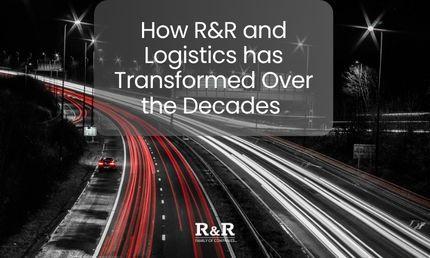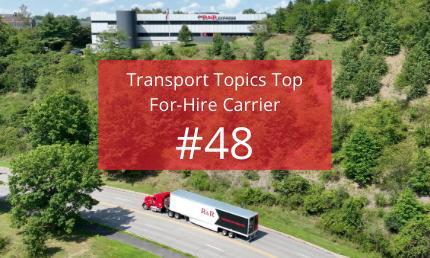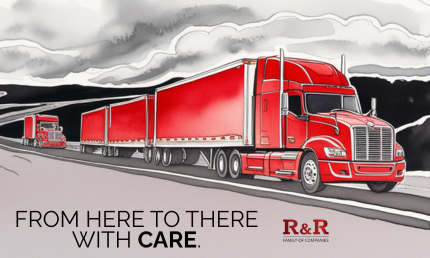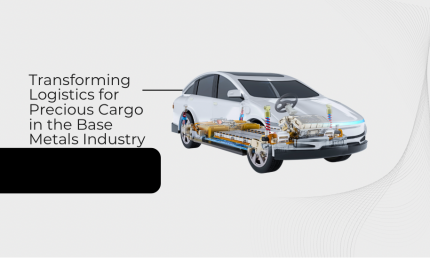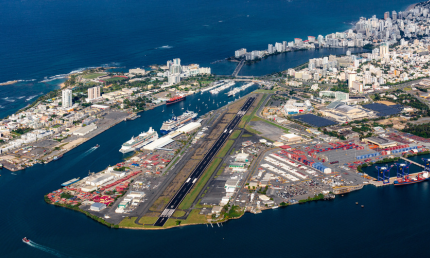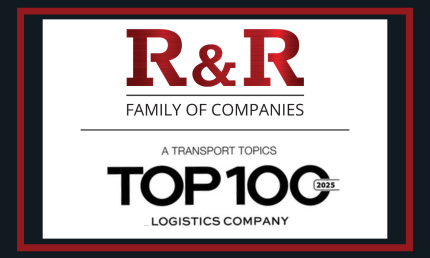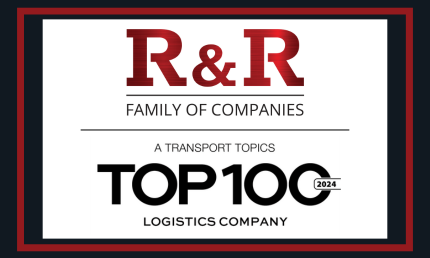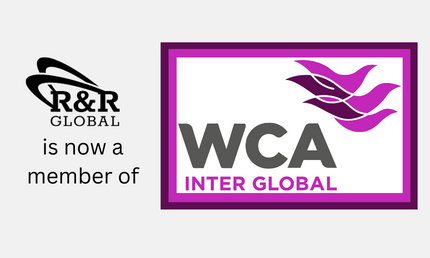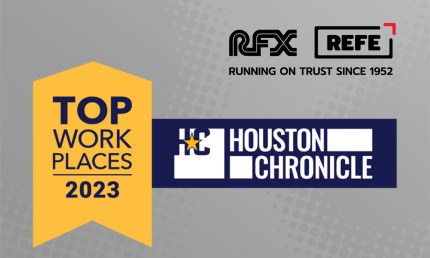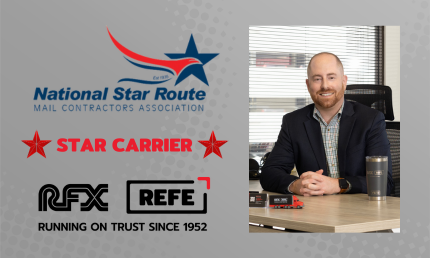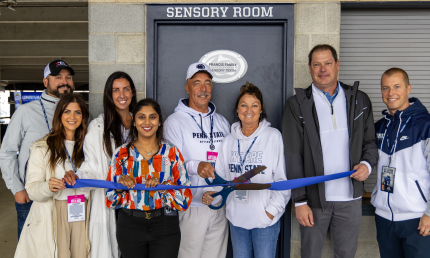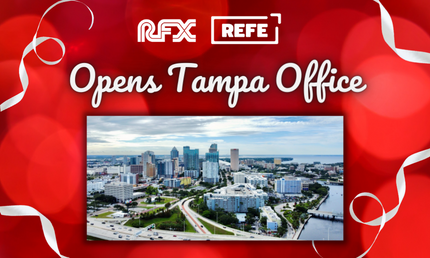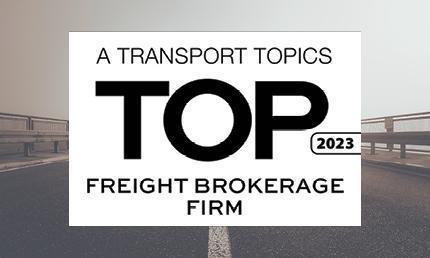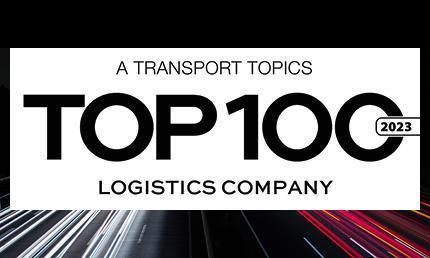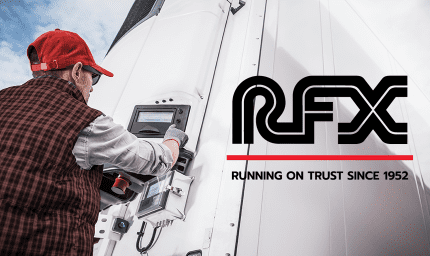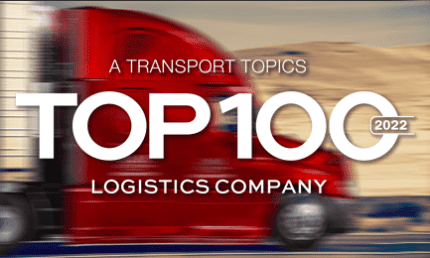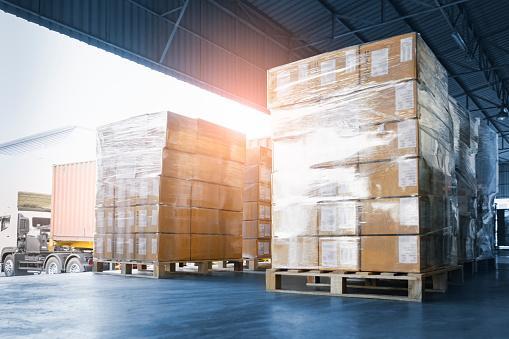
Industry News
Navigating the LTL Freight Landscape: Understanding Carrier Types & Their Impact
2024-10-28 02:36 PM
By The R&R Family of Companies
Request LTL Freight Quote
Have you ever been curious about the captivating choreography of logistics? How your latest e-commerce indulgence or that crucial piece of machinery for your business travels miles to reach you? If yes, then you’re about to embark on a fascinating journey.
Welcome to the dynamic world of Less-Than-Truckload (LTL) shipping. A realm where your small shipment never gets lost in the crowd but basks in its unique journey, nimbly navigating through expansive networks across towns, cities, or even continents.
As you stand on the precipice of this massive LTL market, understanding its various carriers is the key to navigating your shipments efficiently. But with the multiple options, how do you decide which carrier best fits your unique requirements?
We’re about to pull back the curtain on the major types of LTL freight carriers, their strengths, potential pros and cons, and the wonders they’re capable of. This knowledge is your key to unlocking a more efficient, cost-effective, and environmentally-friendly way of sending your goods on their merry way.
Ready to cruise into the heart of LTL shipping? Let’s dive in.
How LTL Networks Operate: A Closer Look
Understanding the operations of LTL networks can be complex for the uninitiated. So, let’s simplify it. We’ll break down the intricacies of an LTL network, understand different operating models and take a journey from pick-up to delivery.
The Hub-and-Spoke Model
At the heart of the LTL network lies the hub-and-spoke model. Picture it like a wagon wheel. The central hub is akin to the wheel’s axle, while the spokes are routes stretching out to various regional terminals (similar to a wheel’s rim). This design facilitates efficient transportation and handling of small freight.
LTL carriers typically operate multiple hubs across their service areas, ensuring comprehensive coverage. Each hub connects to several local or regional terminals (the spokes), serving as freight collection and distribution points. Small packages are picked up from various locations (the “spokes”) and returned to a central hub, where they are sorted and consolidated for delivery to various destinations.
- Shipment Size: The hub-and-spoke model is ideal for smaller LTL shipments. Consolidating multiple smaller shipments makes for efficient use of truck space.
- Delivery Speed: While not the fastest model due to the time spent on consolidation and deconsolidation at the hub, it balances cost-effectiveness and speed. Delivery times are often predictable, making it a reliable choice.
- Budget: One of the most cost-effective models, the hub-and-spoke model reduces costs by consolidating shipments and minimizing the distance traveled by each vehicle. This benefits small to mid-sized businesses or shippers dealing with LTL shipments.
- Environmental Impact: The hub-and-spoke model is relatively eco-friendly thanks to its efficient use of truck space and minimized travel distances. Ensuring trucks are not traveling empty or partially filled helps reduce carbon emissions.
Point-to-Point (Direct) Model
The point-to-point model takes a no-frills approach to transportation, providing a direct route from the origin to the destination. This model benefits time-sensitive or fragile shipments, given its quicker delivery times and only one loading and unloading.
- Shipment Size: The point-to-point model is versatile. It can be cost-effective for large shipments if the speed justifies the price or minimized handling.
- Delivery Speed: It offers the fastest delivery times from Point A to B.
- Budget: This model might be costlier due to dedicated resources for each trip. So it’s ideal for shippers with a higher budget or high-value shipments where speedy and safe delivery outweighs cost concerns.
- Environmental Impact: Although faster, the direct model can be less efficient and eco-friendly than hub-and-spoke or intermodal models, as it may not fully optimize vehicle capacity and route efficiency.
Zone Skipping (Pool Distribution) Model
Zone skipping consolidates smaller shipments into one large shipment for most of its transit, reducing the freight zones it passes through. This model benefits shippers with multiple smaller consignments in the same geographic area.
- Shipment Size: Ideal for smaller, less time-sensitive shipments headed to the same general geographic area.
- Delivery Speed: Although it reduces the number of zones, the delivery speed can be slower as shipments need to be consolidated at the origin and de-consolidated at the destination.
- Budget: Zone skipping can be a cost-effective solution, as it consolidates multiple smaller shipments, reducing per-unit shipping costs.
- Environmental Impact: By consolidating shipments, this model reduces the number of vehicles on the road, leading to lower carbon emissions.
Understanding the specific needs of each shipment and balancing them with these considerations can help shippers choose the most efficient and cost-effective model for their freight transportation needs.
The Journey of an LTL Shipment
The life cycle of an LTL freight shipment includes the following stages:
- Pick-up: The LTL journey begins when a carrier picks up freight from your facility. Unlike Full Truckload shipping, an LTL truck collects goods from multiple regional shippers, filling the trailer with several consignments.
- Transit to Local Terminal: After pick-up, the freight heads to the local terminal, where it’s inspected, sorted according to destination, and prepared for its next journey stage.
- Line Haul: The freight is loaded onto a line-haul truck bound for a hub from the local terminal. This truck usually carries goods from multiple shippers, all headed toward destinations within the same geographic area.
- Hub Activities: On reaching the hub, each shipment is unloaded, sorted based on its final destination, and loaded onto another line-haul truck with other shipments heading the same way. The freight might pass through multiple hubs, depending on the journey length and network model.
- Delivery to Destination Terminal: The freight arrives at a terminal closest to its final destination. It’s again sorted based on specific delivery routes within the region.
- Final Delivery: The freight is loaded onto a local delivery truck, transporting the goods to their respective receivers.
Transloading: A Key Component
A distinguishing feature of LTL shipping is transloading. It is transferring freight from one truck to another during its journey. While this allows for efficient use of space and resources, it can also lead to an increased risk of damage. Proper packaging and handling become crucial in LTL shipping to mitigate this risk.
The Five Types of LTL Carriers
Understanding the diverse LTL carrier types is akin to finding the perfect pieces to your shipping puzzle. Each carrier offers unique strengths and presents certain limitations. Recognizing these can be instrumental in choosing the right fit for your shipment needs and saving money. Let’s delve into the details.
1. National LTL Carriers
National LTL carriers operate across vast geographic areas, often spanning the entire country. Their strengths lie in their extensive coverage and large network of hubs and terminals. While they can offer comprehensive services, sometimes their size may lead to less flexibility and slower delivery times due to extensive transloading processes.
With their expansive geographic coverage, National LTL carriers are your go-to choice when shipping coast-to-coast. They operate a network of terminals and hubs nationwide, making them well-equipped to handle a high freight volume.
- Pros: Comprehensive coverage, large capacity.
- Cons: Less flexible due to size; potentially longer delivery times due to multiple transloading processes.
- Money-Saving Tip: National carriers are best leveraged for long-haul shipments, where their broad network can optimize costs.
2. Multi-Regional LTL Carriers
Operating over multiple, but not all, regions of a country, multi-regional LTL carriers strike a balance between expansive coverage and localized service. They provide shippers with a more regionally-focused approach than national carriers while retaining a broad service area. However, their network is less extensive than national carriers, which may limit their utility for coast-to-coast shipments.
When your shipment needs to cover multiple regions but only span part of the nation, multi-regional LTL carriers come into play. Offering a more focused approach than national carriers, they provide full service over a vast, but not all-encompassing, area.
- Pros: Balance between comprehensive coverage and regional service.
- Cons: Not as extensive as national carriers; may not cater to coast-to-coast needs.
- Money-Saving Tip: Utilize multi-regional carriers when your freight destinations are concentrated within their service regions. This way, you gain regional focus without paying for unnecessary nationwide coverage.
3. Regional LTL Carriers
Regional LTL carriers specialize in moving freight within a specific region. Their localized focus allows for a strong understanding of regional nuances, shorter transit times, and more personalized customer service. However, their limited geographic coverage can challenge shippers requiring nationwide service.
Regional LTL carriers are optimal if your shipping needs are confined to a specific region. Their deep understanding of local market nuances and a highly focused network ensure excellent service and quicker transit times within their area of operation.
- Pros: Shorter transit times, personalized customer service, and strong regional knowledge.
- Con: Limited geographic coverage.
- Money-Saving Tip: Regional carriers can provide a cost-effective solution with faster delivery times for shippers with high-volume shipments within a particular region.
4. Sub-Regional LTL Carriers
Sub-regional LTL carriers serve small, localized markets within a particular region. These carriers offer high-speed, often next-day delivery services within their limited coverage area. While they can provide unparalleled speed and service within their domain, they may not be suitable for shippers with broader geographic needs.
Sub-regional LTL carriers cater to localized markets within a larger region, offering high-speed deliveries. These carriers are optimal if your shipping needs are localized and time-sensitive.
- Pros: Unmatched speed within their coverage area and excellent service.
- Con: Limited service range.
- Money-Saving Tip: Make the most of sub-regional carriers for high-priority, localized shipments where timely deliveries are more important than the cost of speed.
5. Asset-Lite LTL Carriers
Asset-lite LTL carriers operate with fewer owned assets and rely more on third-party partnerships to provide their services. They offer flexibility and scalability at competitive rates. However, their reliance on external partnerships may affect their control over the delivery process, impacting reliability. An easy way to understand their model is to look at them as the Uber of logistics carriers. This model offers customers the flexibility to scale as per demand, often at competitive rates.
- Pros: Scalable and cost-effective.
- Cons: Less control over the delivery process and increased risk for reliability issues due to third-party dependence.
- Money-Saving Tip: Asset-lite carriers can be cost-effective for shippers with fluctuating or intermittent demand. Their model is quickly scalable and allows users to pay for only what they use. This helps avoid unnecessary expenditures such as the retainer fees of a contract.
By understanding the unique offerings of each carrier type, shippers can align their specific needs to the best-fit carrier, optimize their shipping processes, and potentially save money. Hence, choosing a suitable LTL carrier can significantly impact the company’s shipping efficiency and bottom line.
Unraveling the LTL Maze with a Trusted Guide
In the maze-like realm of LTL freight carriers, a “one-size-fits-all” strategy isn’t a game-changer. Recognizing the unique advantages and potential pitfalls of each carrier type is pivotal. That’s where an experienced and reliable 3PL/broker partner steps in.
We at R&R Express utilize our years of expertise as a dependable LTL freight broker to guide you. We comprehend the complexities of the LTL market, understanding each carrier’s strong points. This allows us to pair your specific needs with the ideal carrier.
The LTL freight world is vast, but you needn’t be intimidated. Think of R&R Express as your ally, simplifying freight shipping complexities into strategic advantages for your business. Ready for a chat? Contact us at R&R Express, and let’s turn challenges into opportunities together.
Request LTL Freight Quote

Industry News
What is Concierge-Level LTL Shipping?
10-28-2024
This blog will examine the various challenges of traditional LTL and explain how concierge-level LTL support from an experienced broker partner can simplify shipping at every stage.
Read More...
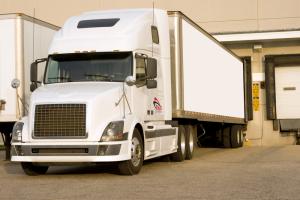
Industry News
Five Misconceptions About LTL Freight Shipping
10-28-2024
LTL freight shipping offers excellent options for shippers not needing the capacity of a full truckload, letting them ship specialized items, access LTL reefer shipping, and save money.
Read More...
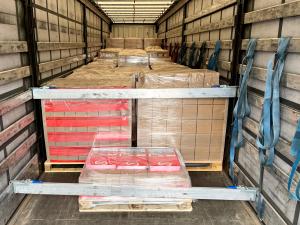
Industry News
The Benefits of Less than Truckload (LTL) Shipping
10-28-2024
For shipments not large enough to fill the full capacity of a 53’ trailer, many shippers utilize LTL (less than truckload).
Read More...

Industry News
Why LTL Accessorials at Pickup and Delivery Matter
10-28-2024
An accessorial is a charge billed to customers using LTL for any additional services the carrier must provide when picking up, handling, or delivering freight.
Read More...

Industry News
Know Your LTL Classification
10-28-2024
By following a few simple guidelines, shippers can ensure that they get their freight classification right on the first try, rather than endure costly reclassifications.
Read More...

Industry News
As Trucking Goes Green, Shippers Turn to LTL
10-28-2024
For shippers looking to navigate this green transition successfully, it is crucial to partner with a brokerage that understands the nuances of sustainable shipping.
Read More...
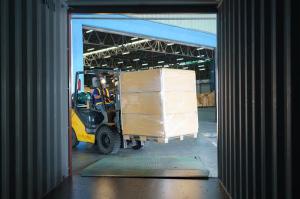
Industry News
A Comprehensive Guide to LTL & Truckload Accessorials
10-28-2024
Accessorial charges (often called simply accessorials) are additional fees carriers charge for services extending beyond standard pick-up and delivery.
Read More...

Industry News
Navigating the LTL Freight Landscape: Understanding Car
10-28-2024
Understanding the operations of LTL networks can be complex for the uninitiated. So, let’s simplify it.
Read More...
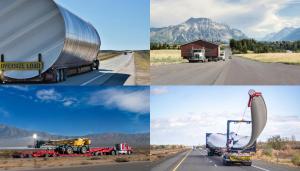
Industry News
Six Considerations Searching Right Heavy Haul Partner
10-03-2023
Six Considerations When Searching for the Right Heavy Haul Partner
Read More...
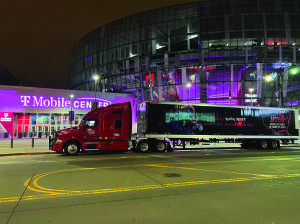
Industry News
Go Behind the Scenes of Entertainment Logistics
09-06-2023
Go Behind the Scenes of Entertainment Transportation and Logistics
Read More...

Industry News
International Freight Packaging Requirements
08-16-2023
International Freight Packaging Requirements
Read More...
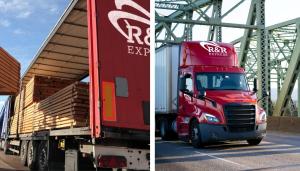
Industry News
Assets Are An Advantage
06-06-2023
When you choose to ship with the R&R Family of Companies, you can rely on the advantages that our asset inventory and large carrier network provide.
Read More...

Industry News
R&R Family of Companies Broader Freight
02-16-2023
Having access to the right shipping solutions is essential for any business. Learn more about the value of partnering with a diverse shipping company.
Read More...

Industry News
How the New CII Regulation Will Affect International Oc
02-16-2023
It is now mandatory for all ships to calculate their attained Energy Efficiency Existing Ship Index (EEXI). See what this means for international shipping.
Read More...

Company News
Heavy Haul/Over Dimensional Shipping
01-30-2023
For freight that exceeds the legal limit for size and/or weight, or requires special handling during transport, you can count on R&R to provide limitless solutions to get your freight delivered safely, on time and damage-free.
Read More...
